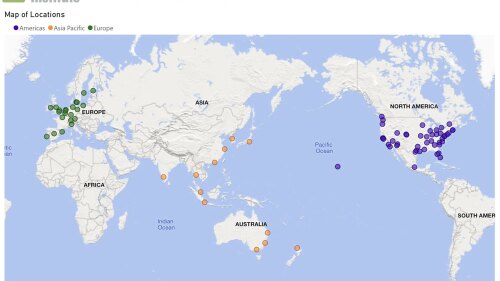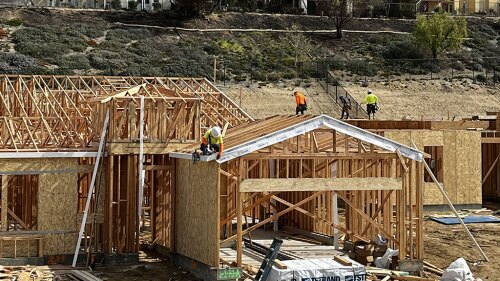The ULI Net Zero Imperative (NZI) is ULI’s multiyear initiative to accelerate decarbonization in the built environment and advance the organization’s net zero mission priority. Implemented by the ULI Lewis Center for Sustainability in Real Estate, key programs include Technical Assistance Panels (TAPs), which are intense three-day engagements during which a panel of ULI member experts and partners help clients or sponsors, often local governments, think through strategies for advancing their net zero goals.
Each year, the Lewis Center recruits district and national councils (Europe and Asia Pacific) to participate in the program. The current fourth cohort is the program’s largest, with 10 district and national councils participating. By hosting TAPs and post-TAP workshops, and supporting research, the objective is to get those expert recommendations quickly adopted into the built environment.
The many difficult issues identified by participating councils—and the discussions among participants over the course of the program—provide an important signal about what cities and real estate leaders are working on and thinking about when it comes to advancing net zero goals. With nearly 30 communities participating to date, key themes are coming into focus.
Below are 10 core insights from the program about the net zero actions being taken right now:
Net Zero Imperative Cohort Four:
· ULI Atlanta: Advancing embodied carbon policies through local zoning
· ULI Chicago: Documenting an affordable housing retrofit case study
· ULI Germany (Berlin): Documenting a neighborhood-scale decarbonization case study
· ULI Hong Kong: Initiating progress on sustainable fit-outs
· ULI New York: Solving complex carbon emissions caps on buildings
· ULI Northwest: Advancing grid-interactive buildings
· ULI Philadelphia: Leveraging green finance for affordable housing
· ULI Sacramento: Planning a net zero community resilience center in Sacramento
· ULI Spain (Madrid): Advancing neighborhood-scale decarbonization solutions
· ULI Washington (D.C.): Producing net zero guidelines for transit-oriented development
Insights:
1. Reset for today’s reality
Real estate development and financing options are different now than just six months ago—and will be different yet again in six months. Incorporating adaptability and flexibility into both new net zero construction and retrofits will enable projects to meet the moment and leverage innovative financing opportunities as they arise.
2. Untap the potential of new technologies
Decarbonization technologies are advancing and maturing rapidly, which can lead to hesitation when choosing the “right” solution for a building (sometimes at the cost of defaulting back to a less efficient, business-as-usual solution). While many of these technologies, such as heat pumps, have already proven themselves, early adopters of these technologies need to be rewarded for their carbon-friendly decisions via policies and incentives. This will help ease any potential buyer’s remorse.
3. Create replicable and scalable solutions
While each building upgrade is unique, approaches to retrofits do not have to be bespoke. To enable faster and more efficient building decarbonization—and increase the potential for replicating that progress elsewhere—detailed case studies allow project leaders to learn from each other.
4. Create new markets with local policy
New York City’s Local Law 97 illustrates the power of local regulations to shift market dynamics around decarbonization. Requirements for environmental performance, energy efficiency, emissions reporting, and building improvements are creating new markets to meet the increased need for technology and professional services. Tight regulations also impact the financing and investor level, creating incentives to invest in compliance rather than risk costly fines.
5. Leverage green finance through decarbonizing
One common thread throughout the cohort of cities studied was the real estate industry’s willingness to embrace and implement proven decarbonization technologies. The greater challenge is funding: how to leverage green finance and creative funding sources to ease any potential or perceived upfront cost premiums.
6. Weatherize to adapt for a changing climate
Real estate is on a journey to net zero, and often the first step is rightly focused on energy efficiency and performance of a structure. With the goal of reducing energy usage and improving occupant comfort, weatherization refers to upgrades such as moisture control, air sealing, more efficient ventilation, and better insulation of doors and windows. As the global climate and local micro-climates continue to shift, weatherization is a foundational step on that journey to ensure both habitability and profitability.
7. Maximize co-benefits
Achieving net zero in buildings can create a multiplier effect and the opportunity for numerous co-benefits. For example, better lighting, better air quality, and increased resilience can lead to happier and longer-term tenants.
8. Lean into local leadership
One common thread across ULI’s global regions in the Americas, EMEA, and APAC is that cities have largely taken the lead on decarbonizing their communities. Building broad-based support and targeted programs and financing at the local level ensures that the solutions are tailored to the specific needs of the local market.
9. Make decarbonization a team sport
Public-private partnerships are absolutely critical to meet net zero goals. Leveraging each sector’s strengths helps accelerate action by building relationships and activating private capital, which also reduces friction by removing unnecessary, overly burdensome, or misaligned requirements and incentives.
10. Embrace the complexity of capital stacks to achieve net zero in affordable housing
Ask any affordable housing developer about their pro forma and they will respond, “It’s complicated.” Achieving both housing attainability and net zero will require a complex layering of capital, and developers who are comfortable with the complexity will be better positioned to flex new and creative financing sources.
The Net Zero Imperative program is driven by a commitment to action, and bolstered by the dedication and support from donors, engagement by ULI district and national council staffs and member champions, and the partnership of municipalities and organizations.
Do you have a net zero challenge in your community that might be appropriate for technical assistance? NZI Cohort 5 applications will be open through July 31, 2025. Reach out to [email protected] or visit ULI.org/NZI for more information.
NZI Cohort 4 – 10 Cities Partnering to Accelerate Building Decarbonization
The ULI Net Zero Imperative (NZI) is a global program that began in 2021 to leverage ULI’s district and national councils (i.e., local chapters) and expert members to advance decarbonization locally and is a significant aspect of ULI’s work to advance its net zero mission priority. Through grant-funded technical assistance panels (TAPs) and implementation efforts, NZI brings together public- and private-sector professionals to tackle net zero challenges.
Interested in getting involved with NZI? Connect with your local ULI district or national council and visit ULI.org/NZI to learn more.
Applications for Cohort 5 of NZI will be accepted through July 31, 2025. Send an email to [email protected] to set up an introductory call or to ask any questions.
Act today by applying to be an expert panelist and help scale NZI by donating at uli.org/donate/NZI.
Related Resources
- ULI Net Zero Imperative
- Announcing Cohort 4 of ULI NZI
- Three Years of Accerating Building Decarbonization
- Pumping Up Sustainability: Myth Busting Heat Pumps
- ULI Net Zero Imperative – Accelerating Real Estate’s Journey to Zero
- Green Finance Unlocked
- Multifamily Building Electrification: How San José is Prioritizing Equity and Health


















